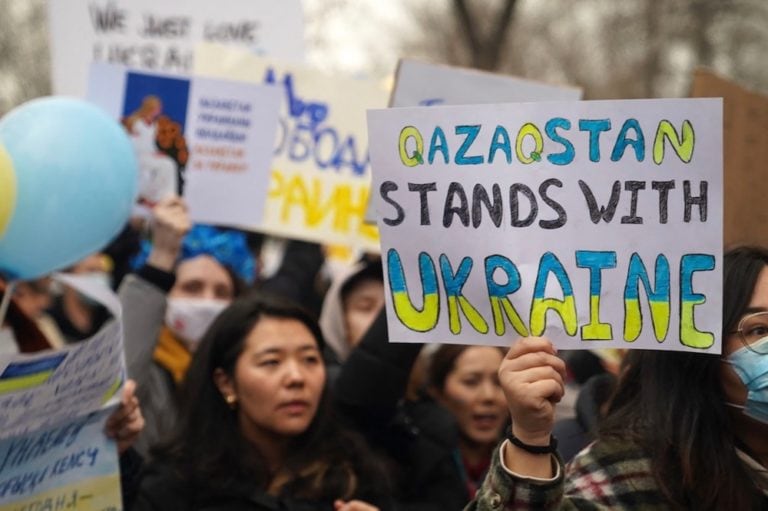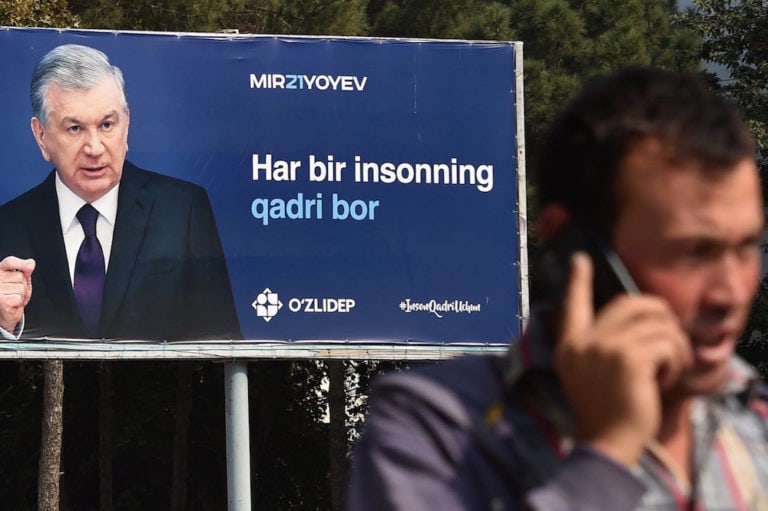(RSF/IFEX) – On 22 December 2003, National Prisons Administrator Mikhail Gurevich announced that jailed journalist Ruslan Sharipov would not be included in a general amnesty announced by President Islam Karimov on 1 December, because his crime is considered “too serious.” The journalist, press freedom and human rights campaigner has been imprisoned since 26 May. On […]
(RSF/IFEX) – On 22 December 2003, National Prisons Administrator Mikhail Gurevich announced that jailed journalist Ruslan Sharipov would not be included in a general amnesty announced by President Islam Karimov on 1 December, because his crime is considered “too serious.”
The journalist, press freedom and human rights campaigner has been imprisoned since 26 May. On 25 November, the World Association of Newspapers (WAN) awarded him the 2004 Golden Pen of Freedom prize for “his courageous resistance to attacks, torture and constant harassment under President Islam Karimov’s repressive regime.”
“Reporters Without Borders believes the accusations against Sharipov have only one aim: to silence a dissenting voice. In refusing to pardon him, the Uzbek authorities are demonstrating yet again their total contempt for freedom of expression,” said RSF Secretary-General Robert Ménard. “When Sharipov sought to defend his colleagues and condemn censorship, the authorities did everything possible to gag him; they were prepared to imprison and torture him psychologically and physically. Ruslan Sharipov is a symbol of the oppression that journalists in Uzbekistan are suffering today,” Ménard added.
On 25 September, Sharipov’s earlier conviction was upheld on appeal. He was sentenced to four years in prison for “homosexuality” (under Article 120 of the Criminal Code) and having “sexual relations with a minor” (under Article 128). A former president of the Union of Independent Journalists of Uzbekistan (UIJU) and correspondent for the Russian news agency Prima, the 25-year-old journalist was arrested on 26 May.
On 8 August, he pleaded guilty under duress, asked forgiveness of President Karimov for all the articles in which he criticised the authorities and waived the defence of his lawyer. In a 5 September letter to United Nations Secretary General Kofi Annan, Sharipov explained he had been forced to plead guilty after suffering physical and psychological torture.
Sharipov, who has never denied his bisexuality, says he does not know the alleged victims. They were questioned on 26 May and kept in detention for three or four days. According to Sharipov’s defence, the young people were beaten and threatened by police, to induce them to appear in court. In fact, the trial had to be adjourned several times because of their absence.
For several years, Sharipov has been the target of various kinds of harassment aimed at forcing him to give up his work as a human rights defender and to prevent him from criticising the authorities in his articles.


